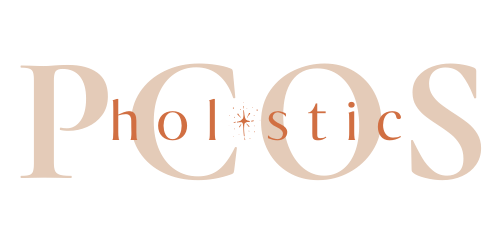PCOS Types 101: The Insulin Type
About 70-80% of PCOSers can thank insulin resistance (or high insulin) for their PCOS symptoms. The goods news is, it’s the first thing we address in the Holistic PCOS Method™ without going crazy low-carb, restricting your favorite foods, or overwhelming you with a million diet rules.
Fun Fact: Insulin resistance is the main root cause of PCOS symptoms for up to 95% of overweight women and 75% of "normal" weight people with PCOS. You're not alone!
PS - Not sure which one is your PCOS Type? Take our 2-minute quiz:
As the Insulin Type, you probably:
Feel hungry even after a meal
Feel sleepy after meals (especially lunch)
Tend to crash in the afternoons
Crave sugar often (especially after a meal)
May be overweight
May have an A1C above 5.7 or have been diagnosed with insulin resistance or pre-diabetes
That’s great and all, but how does insulin resistance/high insulin cause PCOS symptoms?
Well, when insulin is especially high (in the case of insulin resistance, or an intense blood sugar spike), it tells our ovaries to stop producing so much estrogen and progesterone (the two hormones that run our menstrual cycle) and to start producing more testosterone instead (the "male" hormone—or “androgen”—that contributes to symptoms like irregular periods, acne, unwanted hair growth, and more). Not to mention, insulin issues also contribute to inflammation, adrenal fatigue, and stubborn weight gain—all of which can worsen PCOS symptoms.
While your best bet is to join us in our groundbreaking, evidence-based program, the Holistic PCOS Method™ to learn how to manage the other big symptom drivers, here are 3 quick tips to start managing Inflammatory PCOS in the meantime:
Three Tips for Balancing Blood Sugar + Hormones
1. Swap simple carbs for more complex ones.
You don't need to go cold turkey on the carbs! But it's best to avoid simple, process carbs (think: sugar, candy, white bread, pastries, etc.) as much as you can and instead, swap them out for "complex carbs" that contain more fiber to help slow down blood sugar spikes. Think: sweet potatoes and other root veggies, whole grains, beans and lentils, and other high-fiber veggies.
This doesn’t mean you should sweat off pasta, never eat a cookie again, or avoid fruit! TBH what’s the point of living to 100 without cake? But to put your symptoms in remission and enjoy your day-to-day life more, it’s best to eat them mindfully, with a preference for more complex, whole-food carbs.
2. Eat breakfast within 90 minutes of waking up.
When we go too long without eating (especially those of us with a hormonal imbalance), our bodies send out stress hormones to tap into sugar stores. But those stress hormones through our sex hormones out of whack. Breaking your overnight fast gently with a balanced breakfast containing protein, good fats, fiber, and complex carbs, will help your body raise your blood sugar in a healthy way, without stressing out your hormones.
Speaking of…
3. Focus on pairing carbohydrates with proteins, fats, and fiber.
Listen, we all love carbs. But sometimes carbs don’t love us back, particularly when we eat a lot of them on their own. Pairing your carbs (think: chips, baked goods, starchy veggies, beans, whole grains, etc.) with high-quality proteins, healthy fats, and fiber will help slow down any blood sugar spikes that might accompany the carbs. And remember, a blood sugar spike = insulin spike = worse insulin resistance = more PCOS symptoms.
For example, pair an apple (carb + fiber) with some nut butter (fat + a bit of protein), whole grain pasta (carb + fiber) with chicken (protein) and olive oil (fat). If you’re eating something particularly processed like pretzels or chips (a carb with low fiber content), consider having a bit of protein after.
If you want to dive deeper into a complete system that helps you balance your blood sugar, energy, and hormones:
Bonus Tip: Sign up to be the first to hear when the Holistic PCOS Method™ reopens!
Combatting insulin resistance is the foundation of our course, so you'll get fast-tracked symptom relief while you learn what foods are best for your individual body and how to eat for PCOS without feeling overwhelmed, combatting cravings, or depriving yourself.

